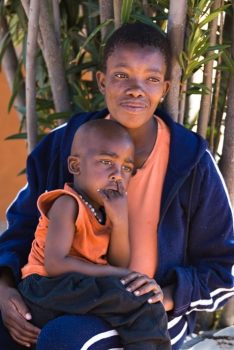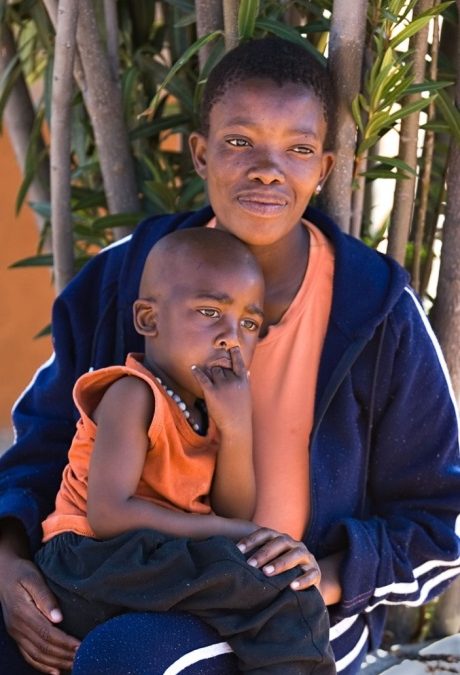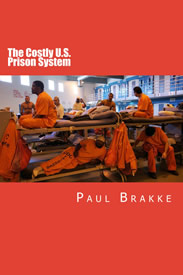 As a society, we don’t pay enough attention to what incarceration costs to the families of the incarcerated.
As a society, we don’t pay enough attention to what incarceration costs to the families of the incarcerated.
Generally, collateral damage refers to unintended damage after a military operation, such as the destruction of buildings and properties not related to the objectives of a mission. Likewise, collateral damage may affect any case that goes through the criminal justice system, as the process impacts entire family units — spouses, children, parents, and relatives — and even society as a whole.
Such unintended consequences occur at all stages of a prosecution, from the initial charge, to the trial and verdict. If the charged person is found guilty, these consequences continue during that person’s probation or imprisonment. Even with a not-guilty verdict, there still is collateral damage. Once a person is charged with a crime, everyone related to that individual can experience a huge financial, emotional, mental, and physical toll.
Whether or not a defendant actually goes to prison, the damages to the lifestyle and the career of a partner or family member can be considerable. Feeling of unfairness by family members can lead to significant anger and hurt — emotions that linger even when a charged individual is found innocent.
Regrettably, these everyday side effects of our judicial system have largely been ignored. This collateral damage is not only to the bonds in the family, but there is economic fall-out to taxpayers, too, from costs of incarceration, loss of income, and the negative effects of broken families. I’ll highlight some of these damages. Additional details can be found in my book Fixing the U.S. Criminal Justice System.
A Loss of Privacy/ Psychological Damage/Familial Fall-Out
When a case goes to trial or otherwise gets media attention, everyone in a family is affected. Friends and neighbors often respond differently than before or turn a cold shoulder. Children get teased or taunted at school. Relatives may get suspicious. Strangers get nosy. In short, life is no longer the same. This results in severe psychological damage for the entire family. For children, the process of taking an accused parent away can be particularly unsettling. And if the police come to the family home to make an arrest or further investigate after arresting a family member, they may tear apart the residence looking for potential evidence to add to their case.
Often bedrooms are invaded or journals and computers are reviewed and sometimes taken for evidence. If the accused manages to return home, family members can still feel unnerved and vulnerable by what has happened. Unhappily, this is only the beginning. Family members will be called upon to do even more to contribute more time and money as the legal process continues. They generally are asked to appear at a series of hearings, as well as find and meet with a lawyer to help their loved one.Far worse still is the collateral damage experienced by families of those in prison. One source of fall-out for families and children is the feelings of shame and social stigma that comes from having a family member in prison.
Many family members don’t tell even their closest friends if a family member is incarcerated in order to maintain this family “secret.” As a result, they miss out on any support their friends might provide, and virtually no other support in the form of counseling or financial assistance is available for the families of individuals processed through the criminal justice system. Moreover, visiting the person imprisoned can be traumatic, discouraging families from wanting to visit again. Some incarcerated parents prefer that their children not visit them in prison or make any effort to contact them, commonly because they are embarrassed or ashamed and feel the visit will hurt their child more. They may ask other family members to keep their imprisonment secret in order to “protect” their child.
Deterioration of Family Units
A prison sentence can often lead to break-ups of family units. Many state laws allow for the termination of parental rights solely on the basis of criminal activity— which means those states can place any children in state custody and effectively break up the family. Alternatively, parental rights can be terminated if “parents fail to communicate regularly with their children.” Marital or romantic relationships can suffer significant, sometimes insurmountable, damage due to the separation when someone is imprisoned. The resulting physical and emotional separation from loved ones contributes to divorces, breakups for unmarried couples, disruptions in parenting, and child custody battles that devastate both parents and children.
Financial Woes
Another huge problem that soon may arise is financial. Among some of the sources of financial strain are the loss of income of the parent now in prison, legal fees to cover the prisoner’s criminal defense and appeals, and the costs for the family of staying in contact with the prisoner. Maintaining contact with the person in prison can be expensive, since prison visits are very costly due to the family’s need for transportation (often to a remote location), meals, vending machine snacks, and perhaps the cost of a hotel or motel for those visiting overnight.
Low-income families normally cannot afford these costs, especially if the prisoner was the primary source of financial support for the family. Family members of incarcerated prisoners may additionally need to take on roles previously played by the incarcerated family member, including being the primary breadwinner. Relatives who take care of the children of mothers or fathers in prison undergo additional financial expenses, as it falls to them to supply the children with food, clothing, any necessary daycare, and/or transportation arrangements to get the kids to school.
Other expenses that families of incarcerated individuals must bear include the costs of providing prisoners with everyday items not provided by the prison. These include toiletries, reading materials, stamps, and extra food.
A Family’s Future Picture, Financial and Otherwise
Many inmates often start to withdraw from being actively involved in their children’s lives if they discover their former partner has started a new relationship. Mothers whose partners are in prison often choose new boyfriends who are abusive, something that ultimately can cost them custody of their own children. Another indirect, but very real, form of collateral damage for families is the loss of income that occurs when a defendant loses a professional or business license and is no longer able to practice in that profession or run that business, even after release.
Often defendants plead guilty to a lesser felony, not realizing it could jeopardize their licensee and chances of future employment. And despite laws that encourage employers not to discriminate against previously convicted employees, discrimination persists, understandably. When prisoners are released, they have limited access to social services such as housing assistance and welfare when they most need it.
The irony is that these additional consequences generally last longer than the direct sentence, so these restrictions often impose harsher and longer lasting penalties than the original sentence did. Thus, the consequences of a person’s conviction are severe for the vast majority of families of ex-convicts, who consequently struggle mightily to re-establish themselves in society.
Damage to the Children
Children are especially affected by the incarceration of a parent, since many of them suffer long-lasting negative outcomes related to their health, academic achievement, and behavior. While it may be financially and emotionally advantageous for spouses to break up with the prisoner, many children may be further hurt and traumatized if they have little to no contact with their incarcerated parent. Minority, and particularly black, families are disproportionately affected in this way, because their rates of incarcerated family members are so high.
Children experience the loss of a parent as a traumatic event, and they suffer under the stigma of having a parent in prison, bearing it as a badge of shame and withdrawing from most social relationships. They experience fear, anxiety, and anger, do poorly at school (they are twice as likely to drop out if their father is not present), and engage in anti-social behavior, such as stealing and starting fires. They rarely want to visit their parent in prison. Their families move more, and they are more likely to end up in foster care.
Suggested Solutions
What can be done to alleviate the real burden and hurts families of convicted defendants face?
I suggest:
- New sentencing policies could be put in place for nonviolent offenders with families to keep them out of prison or provide a shortened prison term. This could involve sentencing them to participate in community-based work-related programs that permit offenders with families to live at home or visit children on a regular basis.
- Extra counseling, tutoring, and mentoring support through schools could be provided to children of incarcerated parents.
- Support programs might be provided for the wives and children of returning prisoners, much like the programs provided for families of returning soldiers, to help them better know what difficulties to expect Expand re-entry and job training for prisoners and ex-prisoners to help them successfully re-enter normal society.
- New prison parenting programs could be offered to help prisoners remain in good contact with their children and help them re-establish good, solid relationships with their children upon their return.
- Community-based agencies, such as volunteer and faith-based organizations, should be encouraged to provide prisoners and ex-convicts with institutional job-skills programs.
- Reduce the automatic licensing restrictions that limit the jobs ex-cons can take without jeopardizing the rights of employers.




